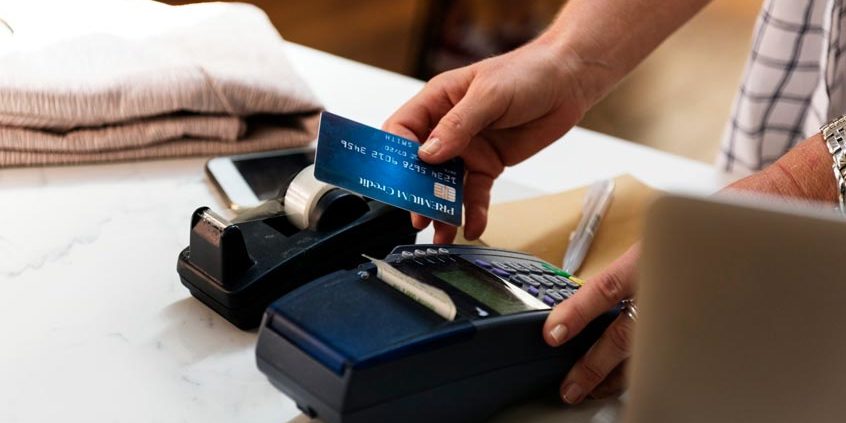Should I Open a Credit Card: the Pros and Cons
Credit cards are an integral tool of modern personal finance. In fact, they can be life-saving in dire emergencies and a great way to stay on top of your everyday bills, even when you’re strapped for cash. However, in most instances, you must pay off your balance every month to avoid accruing interest. The interest rates on credit cards can be extremely high and improper credit card usage can end up costing you. Still wondering “Should I open a credit card?” Liberty Debt Relief is here to cover credit card pros and cons so you can be empowered to make the right decision for your unique situation.
Types of Credit Cards
There are several kinds of credit cards, all offering you, the customer, different benefits. Before applying, evaluate your lifestyle and needs and determine what benefits would best serve you. Here are a few to look for:
Rewards – These include cash back, travel miles, discounts with merchants, and access to exclusive clubs.
Low Interest – For those with good credit, this kind of card is ideal for those who carry a balance from month to month.
Balance Transfer – Additionally, those with good credit looking to save some money can look into this option. These offer low (often 0%APR) introductory rates for moving existing high-interest credit card debt to this new card and can save you money in interest and fees. Typically, you have 12-18 months to pay off the balance before the rates change.
Secured – This type of credit card requires a security deposit in exchange for a credit limit. If you have a short or less than optimal credit card history, this may be your best option.
The Ups and Downs of Owning Credit Cards
Pros
- Build Credit History – If you have a lackluster or non-existent credit history, establishing and maintaining good standing with a credit card can improve your score and lay the groundwork for additional credit opportunities, such as mortgages.
- Earn Rewards – As we mentioned above, many financial institutions offer rewards for purchases made with their credit cards, which means you can actually earn money each time you swipe your card. When considering the credit card pros and cons, keeping rewards high and interest and fees low is the sweet spot of credit card ownership.
- Convenience – Having a line of credit means you can get more done with less cash on hand. You have more payment options and, if you pay off your balance each month, this convenience can help you (or even your business) save time and money.
- Cash for Emergencies – Keeping your credit card balance low means you will have a cash reserve for emergency situations. But, beware, cash advances often carry higher interest rates than regular purchases.
Cons
- Debt Accumulation – Without discipline, debt can accumulate rapidly. Maintaining responsible spending habits will be necessary to avoid overspending and accumulating interest charges or other fees. Additionally, maxing out your credit line can negatively affect your credit score.
- High Interest Rates and Fees – If your credit isn’t stellar, you might be faced with high-interest credit cards. These cards can rack up significant interest fees is not paid off each month. Late payments can also incur large fees, so it is important to at least pay off the minimum due each month.
- Potential for Fraud – Having a credit card puts you at risk for fraud, in which your account is hacked and used without your permission. If you decide to get a card, be sure to choose one that offers protection.
- This list of credit card pros and cons is not exhaustive. You should seek out information that might be unique to your specific financial situation.
How to Prepare
If you decide that a credit card is a good option for you, here are some things to bear in mind in preparation for the jump.
- Build and Maintain Good Credit
It’s no secret that customers with better credit will have access to better terms, including lower interest rates, better rewards systems, and higher credit limits. Maintaining good credit involves making consistent on-time payments on existing debt or eliminating existing debt entirely. - Challenge any Negative Information
Thoroughly review your credit report for errors or suspicious activity. Be sure to challenge any incorrectly reported information and insist on having it removed from your report. Cleaning up your report can go a long way in demonstrating credit-worthiness. - Avoid Taking on Other Types of Debt
It’s best to avoid other types of debt when opening a card, as these can raise your debt-to-income ratio, making acquiring a credit card that much more difficult. This also includes co-signing for someone else’s debt, especially an irresponsible or financially-strained person. - Improve Your Financial Literacy
Now would be a great time to learn how to budget and optimize your spending habits. Track the flow of money into and out of your accounts and be ruthless in eliminating unnecessary expenses.
There’s no doubt that credit cards can provide enormous benefits, but they can also be nightmares if used incorrectly. If you’re still wondering “Should I open a credit card?”, be sure to do diligent research before taking on the responsibility.
Liberty Debt Relief
Liberty Debt Relief has given thousands of customers a second chance at financial freedom. Whether you’re facing overwhelming credit card debt, or you’re looking to rebuild your credit after a rough patch, we can offer your expert debt relief counseling so you can get on the road to a healthy financial future. For more discussion about credit card pros and cons, feel free to contact us today!














Leave a Reply
Want to join the discussion?Feel free to contribute!